WSIS TalkX on ICTs and Peace
International Telecommunication Union (ITU), UN Technology Bank for Least Developed Countries
Session 111
The International Telecommunication Union (ITU) and UN Technology Bank for Least Developing Countries are organizing a webinar dedicated to the use of Information and Communication Technologies in Peace, as part of the WSIS TalkX.
The use of digital technologies can provide information in advance to understand how conflicts are evolving to raise awareness and make informed decisions to respond and mitigate the conflict risks. Information and Communications Technologies (ICTs) also provide opportunities for innovation through use of existing and new digital technologies and promote peace. Use of satellite imagery can map conflicts and provide timely information for decision making, however, technical and analytical capacities require digital capacity development. The digital revolution especially in ICTs are contributing to socio-economic transformation, raising awareness and providing information and data for decision-making in conflict and post-conflict countries.
Some challenges remain for example:
- Limited digital infrastructure needed to benefit from the use of ICTs requires investment to enable access to technologies and bridging the digital divide. Half the global population are still offline with 19% of populations in LDCs having access to the internet.
- Lack of access to advanced technologies such as big data and artificial intelligence limit use of satellite technologies to use geospatial data for decision-making.
- Affordability is another key issue as it contributes to accessing meaningful data for decision making. In Sub-Saharan Africa the cost of the cheapest internet-enabled device is 26.5% of monthly GDP per capita.
During this WSIS Talkx we will hear about the work of different stakeholders in the area of ICTs for Peace.
The Tech for Peace is a new programme that will enable the UN Technology Bank for Least Developed countries to leverage science, technology and innovation to support LDCs emerging from conflict to identify and use technologies to create opportunities that promote stability and peace. The Tech for Peace complimented by the Trade for Peace will provide the nexus of technology and trade especially creating opportunities for integrating SMMEs into the formal and digital economy. The trade for peace highlights the role of trade and economic integration in promoting peace and security in fragile and conflict-affected economies into the multilateral trading system.
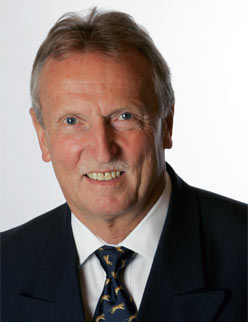
Mr. Malcolm Johnson, Deputy Secretary-General of ITU will deliver opening remarks.
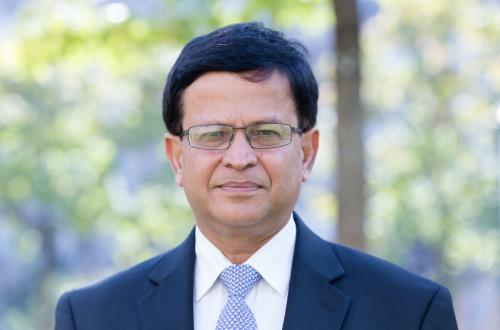
On 8 June 2015, Mr. Nikhil Seth was appointed by the United Nations Secretary-General Ban Kimoon as UN Assistant Secretary-General, Executive Director of the United Nations Institute for Training and Research.
Before assuming the post of the UNITAR Executive Director, Nikhil Seth was the Director of the Division for Sustainable Development, Department of Economic and Social Affairs (DESA) at the United Nations Secretariat in New York. In this role he served as head of the Rio+20 secretariat and of the secretariat for the Third International Conference on Small Island Developing States, spearheading the preparations for these conferences in Rio, Brazil, and Apia, Samoa. He was also
closely engaged in coordinating and advancing their follow-up.
Mr. Seth’s Division was also responsible for supporting the intergovernmental negotiations for the post-2015 development agenda, which was adopted at the United Nations Sustainable Development Summit 2015 in September 2015.

Ambassador Xiangchen Zhang (China) formerly served as Vice Minister in the Ministry of Commerce of China. He has long and extensive experience on WTO issues, international negotiations, and policy research. Ambassador Zhang served until recently as China's Permanent Representative to the WTO and previously as Deputy Permanent Representative. He has had an extensive career of more than 30 years in international trade, serving as Director of the Department of International Trade and Economic Affairs of the Ministry of Foreign Trade and Economic Cooperation; as Director-General of the Department of WTO Affairs of the Ministry of Commerce; and as Director General of the Department of Policy Research of the Ministry of Commerce.
Ambassador Zhang holds a bachelor's degree in Law, a Master's degree in International Relations and a PhD in International Politics from Peking University.
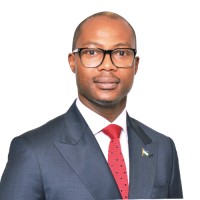

Andreas Hirblinger conducts research on peace processes, with a particular interest in practices of knowledge production. His current research explores the effects of the increasing use of digital technologies by conflict parties, conflict stakeholders and those who aim to make or build peace. Andreas' ongoing projects look into how digital technology helps or hinders dealing with uncertainty in peace processes and explores the opportunities and challenges of using Artificial Intelligence (AI) in peace mediation. In 2019, he conducted a research project that studied the incipient practices of digital inclusion in peace mediation.
Before joining the CCDP, Andreas worked at the Inclusive Peace and Transition Initiative (IPTI), where he contributed to research on inclusive conflict prevention, the emerging international normative framework on inclusion, as well as the behaviour of elites in peace and transition processes. Andreas also has extensive regional expertise, particularly in Eastern Africa and the Horn of Africa. His doctoral thesis, which studied the peace process in South Sudan after the country’s independence, demonstrated that peacebuilding efforts can be compromised by conflicting rationalities that evolve in experts’ discourses on conflict.
Andreas also has extensive experience as a consultant and advisor to governmental and non-governmental organizations working in conflict prevention, peacebuilding and development. His research is published in the Security Dialogue, the Journal of Intervention and Statebuilding, and the Journal of Eastern African Studies.
.png?maxwidth=500)
Nala Amirah is a 17 year old youth activist who aspires to create meaningful and prosperous change in the climate movement and global agricultural food systems. She has founded Green Welfare Indonesia; Indonesia’s first youth led non-profit organization that primarily strives for environmental and social sustainability through advocating against unethical livestock farming and unsustainable agriculture with plant-based approaches and climate education. Recently, she was also appointed as a project officer for the UN Sustainable Development Solutions Network to work towards SDGs solutions and as well as a core team member in Re-earth Initiative to champion for intersectional environmentalism.
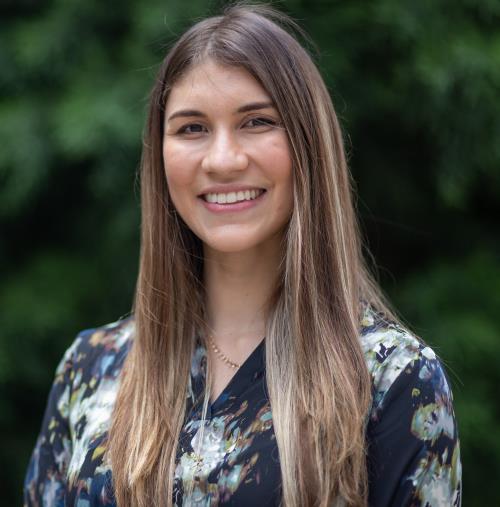
Ms. Daniela Ovalles is a student of Master in Innovation, Human Development, and Sustainability at the University of Geneva. Daniela is a Sustainability and SDGs Activist and advocates for Youth empowerment and overall Young Leadership in the global #Agenda2030. She is representing the WSIS Youth Campaigns from ITU. She promotes the Wisdom Accelerator for Youth (WAY)’s work which intends to inspire and empower global teenagers to become better prepared for the future. She is part of Global Peace and its Inter-Generational Dialogues, a platform where young people and decision-makers dialogue on their aspirations to build a better world.
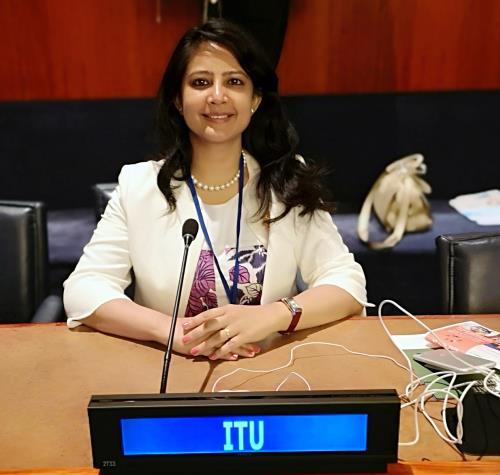
Gitanjali Sah is Strategy and Policy Coordinator at the International Telecommunication Union (ITU) and is responsible for the World Summit on the Information Society (WSIS) process. She has more than 15 years of work experience in ICT policy issues at the national, regional and international level. She is an experienced International Civil Servant having worked at several UN Agencies. She holds M.Phil. Development Studies, University of Cambridge, UK and a Masters in Political Science, Jawaharlal Nehru University (JNU), New Delhi, India.
-
 C1. The role of governments and all stakeholders in the promotion of ICTs for development
C1. The role of governments and all stakeholders in the promotion of ICTs for development
-
 C2. Information and communication infrastructure
C2. Information and communication infrastructure
-
 C3. Access to information and knowledge
C3. Access to information and knowledge
-
 C4. Capacity building
C4. Capacity building
-
 C5. Building confidence and security in use of ICTs
C5. Building confidence and security in use of ICTs
-
 C7. ICT applications: benefits in all aspects of life — E-government
C7. ICT applications: benefits in all aspects of life — E-government
-
 C7. ICT applications: benefits in all aspects of life — E-business
C7. ICT applications: benefits in all aspects of life — E-business
-
 C7. ICT applications: benefits in all aspects of life — E-employment
C7. ICT applications: benefits in all aspects of life — E-employment
-
 C7. ICT applications: benefits in all aspects of life — E-science
C7. ICT applications: benefits in all aspects of life — E-science
-
 C10. Ethical dimensions of the Information Society
C10. Ethical dimensions of the Information Society
-
 C11. International and regional cooperation
C11. International and regional cooperation
-
 Goal 1: End poverty in all its forms everywhere
Goal 1: End poverty in all its forms everywhere
-
 Goal 2: End hunger, achieve food security and improved nutrition and promote sustainable agriculture
Goal 2: End hunger, achieve food security and improved nutrition and promote sustainable agriculture
-
 Goal 3: Ensure healthy lives and promote well-being for all
Goal 3: Ensure healthy lives and promote well-being for all
-
 Goal 8: Promote inclusive and sustainable economic growth, employment and decent work for all
Goal 8: Promote inclusive and sustainable economic growth, employment and decent work for all
-
 Goal 9: Build resilient infrastructure, promote sustainable industrialization and foster innovation
Goal 9: Build resilient infrastructure, promote sustainable industrialization and foster innovation
-
 Goal 10: Reduce inequality within and among countries
Goal 10: Reduce inequality within and among countries
-
 Goal 11: Make cities inclusive, safe, resilient and sustainable
Goal 11: Make cities inclusive, safe, resilient and sustainable
-
 Goal 12: Ensure sustainable consumption and production patterns
Goal 12: Ensure sustainable consumption and production patterns
-
 Goal 13: Take urgent action to combat climate change and its impacts
Goal 13: Take urgent action to combat climate change and its impacts
-
 Goal 16: Promote just, peaceful and inclusive societies
Goal 16: Promote just, peaceful and inclusive societies
-
 Goal 17: Revitalize the global partnership for sustainable development
Goal 17: Revitalize the global partnership for sustainable development
